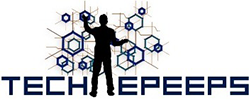At the moment Apple has launched iOS 17.5 beta 2 to builders, and we do not usually report on such releases, however this one’s essential, because it marks the debut of yet one more function Apple was pressured so as to add due to the EU’s Digital Markets Act (DMA).
Beginning in iOS 17.5, EU iPhone homeowners will be capable of obtain apps from web sites – aka sideloading. No must undergo Apple’s App Retailer, or every other app retailer for that matter – Apple additionally began supporting different app shops due to the DMA in iOS 17.4.
Now this takes the flexibleness of discovering apps one step additional. Nonetheless, that is nonetheless Apple we’re speaking about, so it isn’t a free-for-all. Builders who wish to provide downloadable apps on their web sites must bear Apple’s Notarization course of, they should have been members of the Apple Developer Program for 2 steady years or extra, and the developer must be EU-based or have subsidiary that’s.
However wait, there’s extra. Solely apps which have had a million annual first installs or extra on iOS within the EU within the prior 12 months are eligible to be distributed this manner. So whereas the “walled backyard” does have shorter partitions now, the partitions are nonetheless there. The excellent news is that apps downloaded from web sites might be backed up, restored, and up to date identical to all different apps.
If you wish to set up such an app you may see a system sheet displaying the app title, developer title, app description, and screenshots, and you will must grant categorical permission for that developer to put in apps. You may solely be capable of use this function contained in the EU, and solely on iPhones.
The upside of all this for builders is that they will not should pay Apple a reduce of app gross sales for apps distributed on web sites. However that does not imply they will not pay something – Apple calls for a “Core Expertise Price” of €0.5 for every annual set up over a million up to now 12 months. Fortunately, the charge is a minimum of waived for nonprofits, academic establishments, and authorities entities.
Through



















